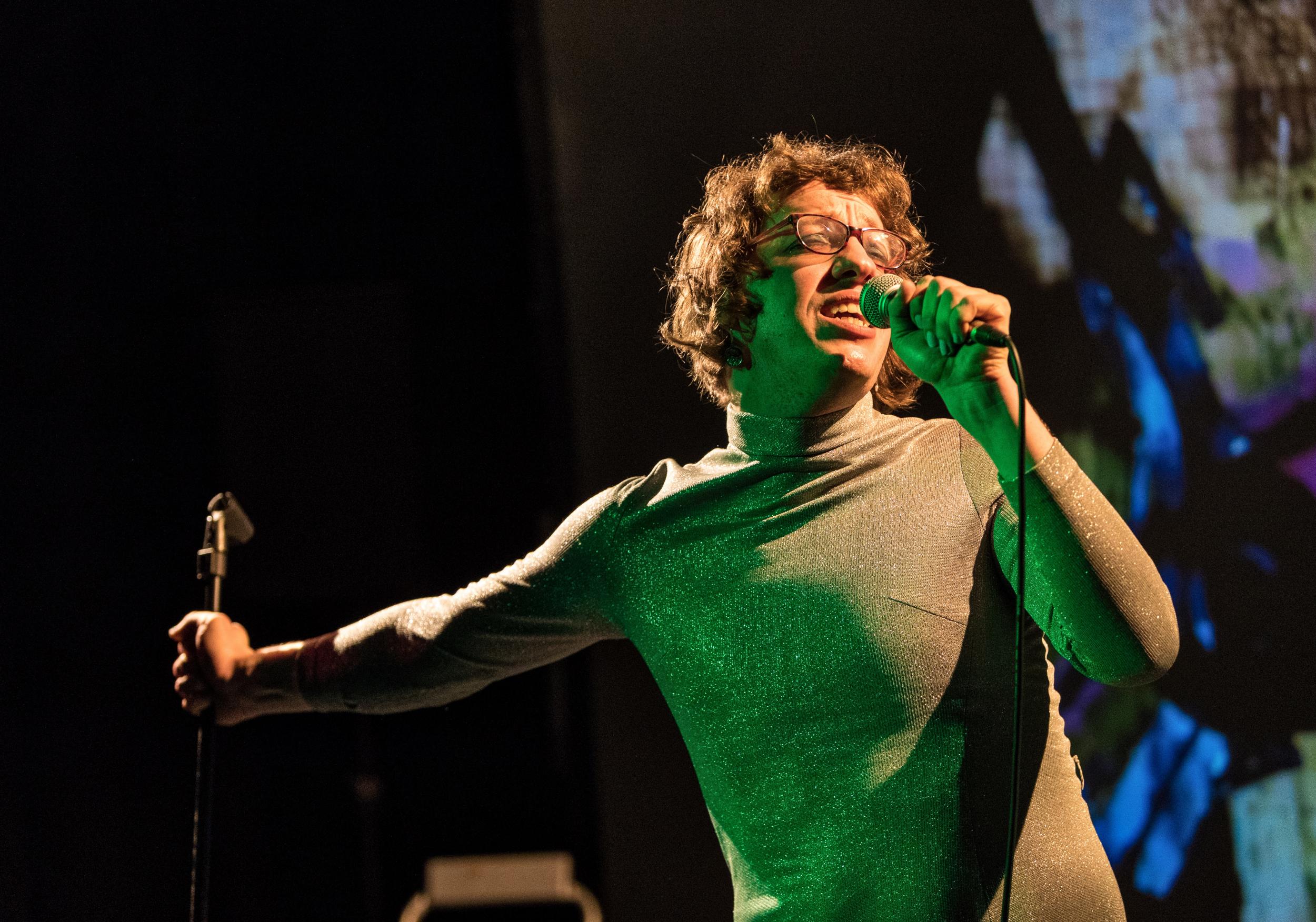Edinburgh Fringe Festival 2019, review: This Script, Drone
Despite common perceptions, Scottish artists and creators are represented at the Fringe... they just have more competition

Your support helps us to tell the story
From reproductive rights to climate change to Big Tech, The Independent is on the ground when the story is developing. Whether it's investigating the financials of Elon Musk's pro-Trump PAC or producing our latest documentary, 'The A Word', which shines a light on the American women fighting for reproductive rights, we know how important it is to parse out the facts from the messaging.
At such a critical moment in US history, we need reporters on the ground. Your donation allows us to keep sending journalists to speak to both sides of the story.
The Independent is trusted by Americans across the entire political spectrum. And unlike many other quality news outlets, we choose not to lock Americans out of our reporting and analysis with paywalls. We believe quality journalism should be available to everyone, paid for by those who can afford it.
Your support makes all the difference.Drone ★★★★☆ / This Script ★★★★☆
The accusation is often made that the arrival of the Edinburgh International and Fringe festivals in August drowns out the local culture in the city and across the Central Belt of Scotland. Yet Scottish artists and creators are represented in the Fringe programme; they just have more competition.
Two shows that have emerged from the fertile ground of the Scottish spoken word scene rise to the challenge of being seen in Edinburgh during August. Their creators were working through early versions of the pieces as far back as 2015, in the Summerhall show Shift/, which focused on Scottish contemporary spoken word. Both have returned with works that break down the imaginary walls between spoken word and theatre.
In Harry Josephine Giles’ monologue Drone, the artist takes on the anthropomorphised role of a combat drone, giving it a female persona and imagining her at work, becoming uncertain about her career, having what appears to be a breakdown in mental health, and taking herself off on a nice holiday and becoming vegan as forms of self-care. It sounds, on paper, like a piece of high-concept ephemera, but Giles’ delivery and visualisation of the entire piece are exceptionally well-worked and atmospheric.
With a barely-modulating live score of electronic drone music from Neil Simpson and background visuals from Jamie Wardrop of dusty plains lit by a jittering targeting sight, Giles appears in a steel-grey sequined dress which embodies both the casing and the femininity of the imagined drone. Their voice becomes a drone itself; slow and deliberate, somewhere between anguished and soothing, and echoing from deep within the soul when lines are delivered with their head inside a miked-up office filing cabinet.
It’s a deeply experimental – and often sinister and darkly humorous – piece, but one which works perfectly as an expression of the way our humanity and identities are fusing with the machine in an interconnected world.
At the Scottish Storytelling Centre, meanwhile, Jenny Lindsay’s This Script (which has now finished, but will return to stages post-festival) presents a more personalised indictment of current concerns, namely the condition of feminism post-#MeToo.
It’s not a piece about #MeToo, however, as Lindsay tells us she refuses to accept the inevitable definition in the eyes of others which telling her own story will bring. Instead, she refers to it as “the ‘that’”, and instead switches between a selection of themed poems and introductions in her own voice, which lends the piece a rich seam of autobiography and honesty.
“You may be expecting to be told off by an angry feminist… in fact, some of you may be looking forward to that,” she jokes, before digging deep into a well which is both highly eloquent – her univocal poems, each using only words which share a common vowel sound, are meticulously composed – and thoroughly educational, especially to those who aren’t as versed in these discussions.
She casts back to her own younger years, when being a beer-drinking ladette or an ass-kicking, Buffy-style action figure was the popular definition of feminism, and then touches upon the prevalence of pornography (“laughter is the difference between porn and sex,” she says, just one of many lines to roll over on its own), abortion, capitalism and, in an enjoyably musical piece, the pressure on women to have or not have children. For a finale, her book is cast to the floor with a demand that we “judge this and judge me as you would the craft of a man”, a resonant end to a thoroughly thought-provoking work.
Join our commenting forum
Join thought-provoking conversations, follow other Independent readers and see their replies
0Comments